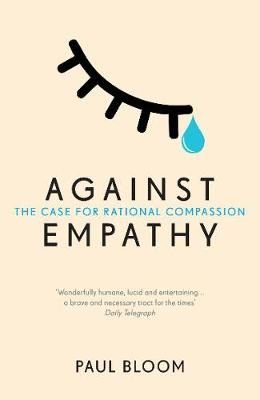

Studies of empathy’s effects tend to use expansive definitions, and their conclusions are thus often suspect. The imprecise boundaries between terms for shared feelings drive a lot of confusion.

Author Paul Bloom isn’t against sympathy he’s not against mentalizing, he’s not against compassion. This isn’t one of those books that takes a common word, defines it in an idiosyncratic way, and then argues against that definition. I read 2016’s Against Empathy, and what I appreciated most about it was its precision. Since that probably won't happen now, I thought I'd post it here instead. I was planning to submit this for the SSC Book Review series later this summer.

More by Scott AlexanderĪ reader has created a web app web that allows SSC readers to place themselves on a map. Regular threadsĪ blog by Scott Alexander about human cognition, politics, and medicine. A user also maintains an unofficial registry of bans. When making a claim that isn't outright obvious, you should proactively provide evidence in proportion to how partisan and inflammatory your claim might be.įeel free to report comments or message the mods with your thoughts. Assume the people you're talking to or about have thought through the issues you're discussing, and try to represent their views in a way they would recognize. See the Victorian Sufi Buddha Lite comment policy: comments should be at least two of. Guiding us expertly through the experiments, case studies and arguments on all sides, Paul Bloom ultimately shows that some of our worst decisions - in charity, child-raising, criminal justice, climate change and war - are motivated by this wolf in sheep's clothing.īrilliantly argued, urgent and humane, Against Empathy overturns widely held assumptions to reveal one of the most profound yet overlooked sources of human conflict.Companion subreddit for Slate Star Codex. Empathy therefore biases us in favour of individuals we know while numbing us to the plight of thousands. As the latest research in psychology and neuroscience shows, we feel empathy most for those we find attractive and who seem similar to us and not at all for those who are different, distant or anonymous. But while it inspires care and protection in personal relationships, it has the opposite effect in the wider world. We think of empathy - the ability to feel the suffering of others for ourselves - as the ultimate source of all good behaviour. In a divided world, empathy is not the solution, it is the problem. This landmark scientific investigation by one of the world's leading psychologists reveals empathy to be our most dangerous emotion


 0 kommentar(er)
0 kommentar(er)
